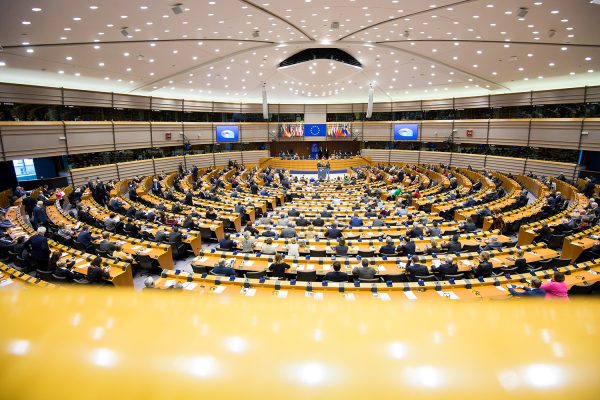
I’m used to American and British commentators dismissing the EU, but when even a Harvard professor misses the point it warrants a rebuttal.
Imagining a post-American world, Stephen M. Walt doesn’t see Europe playing much of a role. He argues in Foreign Policy that the EU project is deeply troubled.
- The outcome of the Brexit process is uncertain.
- Economic growth on the continent is uneven.
- Extremist parties are flourishing in several countries.
- The refugee issue, which has convulsed domestic politics throughout Europe, is not going away.
His bottom line:
The EU has become too large and heterogeneous to make rapid and bold decisions, and it faces opposition from illiberal and xenophobic elements within.
Look on the bright side
Walt’s is a pessimistic view. Look on the bright side. Despite the illiberal and xenophobic opposition he mentions, both inside the bloc (particularly the governments of Hungary, Italy and Poland) and outside (Russia and Donald Trump), and despite now counting 28 member states, each with their own interests and political traditions, the EU is still able to move forward. Not rapidly and decisively, no. How could it?
But compare Europe today to ten years ago, before the sovereign debt crisis, and a lot has changed. We have had bailouts, the creation of a European rescue fund and stricter enforcement of budget rules. We are seeing the politicization of the European Commission and for the first time member states are willing to call out one of their own (Poland) for violations of European values and the rule of law.
Compare Europe today to a generation ago and there is a world of difference. Nations that were communist for half a century are now free-market democracies. We have seen the introduction of a single currency, open borders, cross-border police and judicial cooperation and the beginning of a European foreign policy.
In the next ten years, we are likely to see closer military integration, more emphasis on economic convergence and Europe using its market power to become a rule-maker in the digital economy.
Problems
As for Walt’s specific criticisms:
- The outcome of the Brexit process is only uncertain because Britain has yet to decide what it wants: a hard break with the EU or Norway-like affiliate status. Either way, the divorce will be costlier for Britain than the EU.
- Growth is uneven. Central European countries are growing fast, but they have a lot of catching-up to do. Southern European countries, in particular Italy, risk stagnation. But that’s what EU cohesion funds are for. We read all the time that Germany resists transfer union, but there is already so much money available that countries are struggling to spend it.
- Far-right parties flourish in some countries (Austria, Hungary, Italy, Poland), but they have recently either underperformed in others (France, Netherlands) or been unable to get into government (Sweden).
- The refugee issue hasn’t gone away, but it has subsided as Europe has taken action to control the influx of people and improve the integration of newcomers. There is no easy fix. This will remain an issue for years. The point is that Europe has been able to act, despite big differences of opinion between governments.
Remarkable
The EU is a unique experiment. There is no template for it. Sometimes it needs to take a step back in order to take two steps forward. Oftentimes it is slow. Finding consensus among 28 (soon 27) states takes time and is sometimes impossible. There are many country-specific as well as EU-wide problems.
What is remarkable is that the EU has been able to muddle through despite it all, and sometimes taken huge strides.
Americans and Brits frequently criticize the EU without telling us how it could do better. I expect as much from Republican politicians and Telegraph columnists, but an expert in international relations like Walt can do better.
